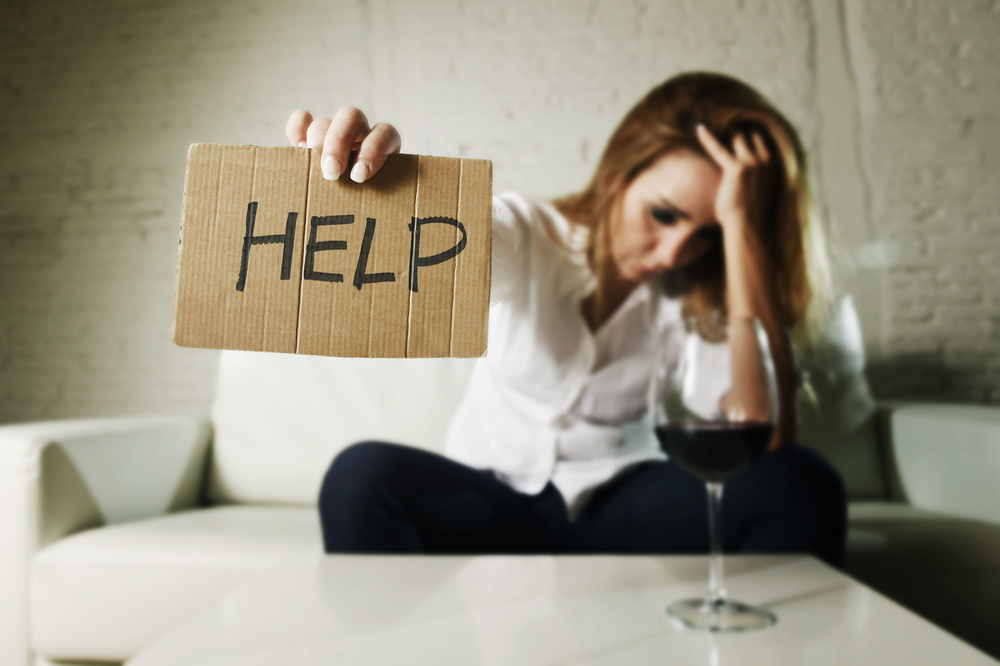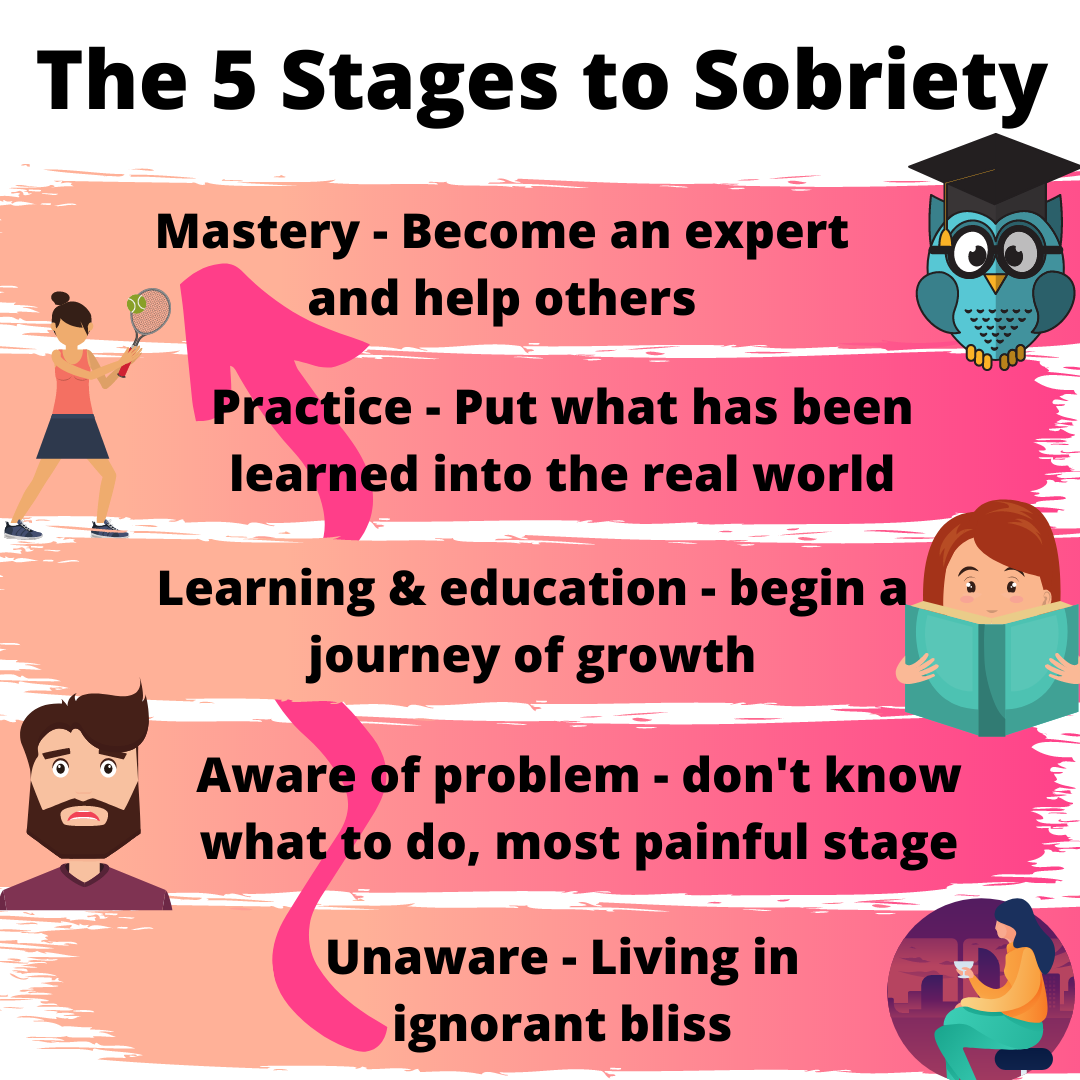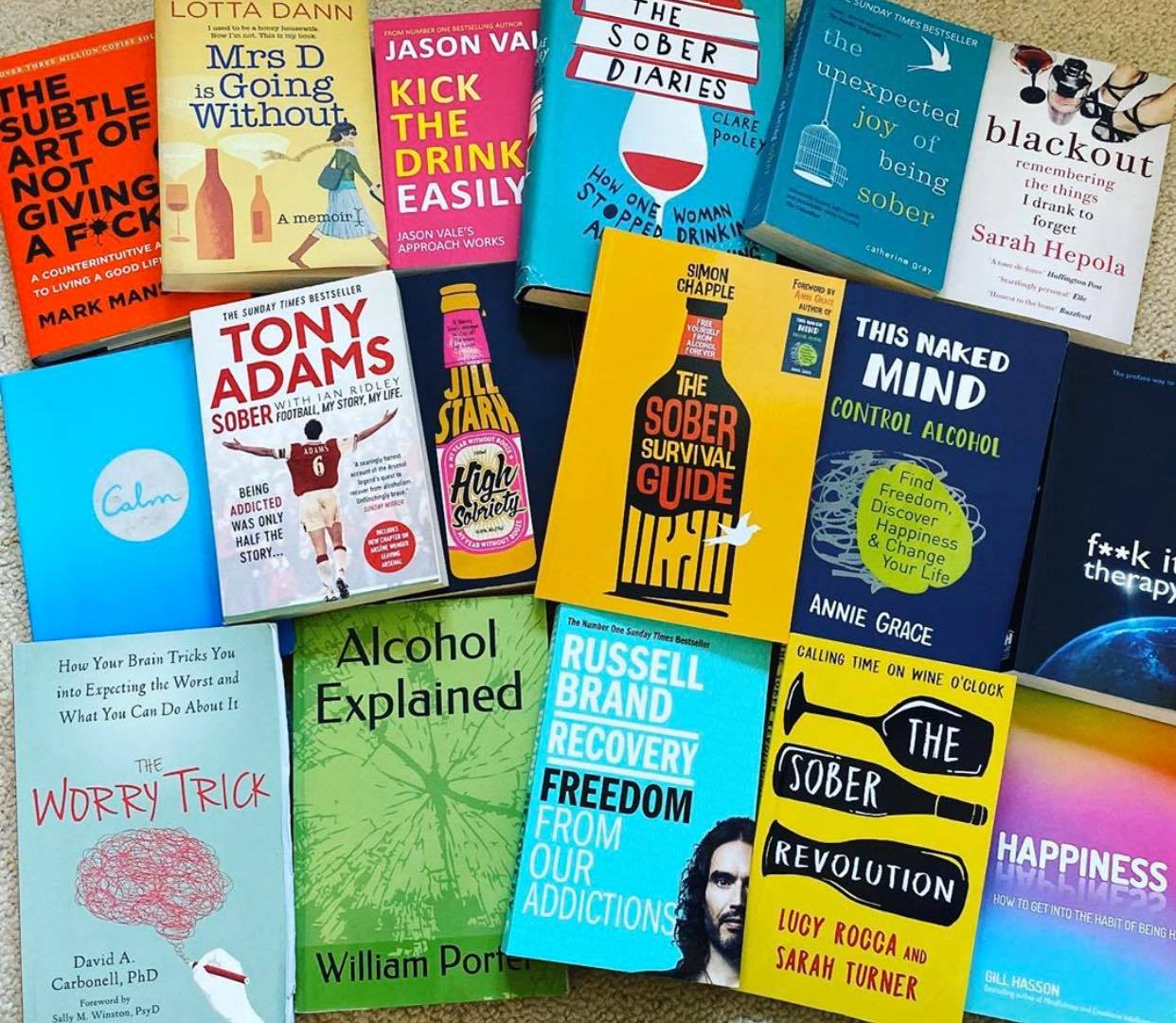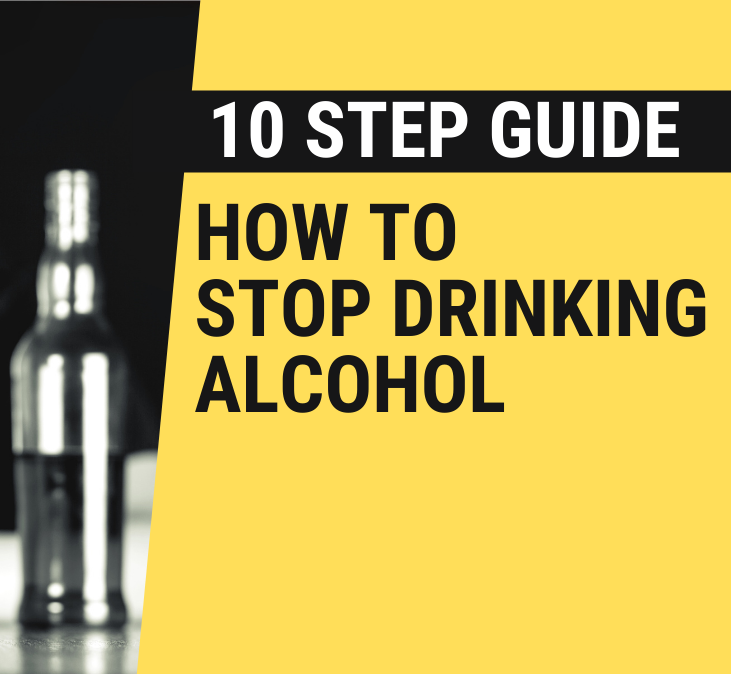I am often asked exactly how to quit alcohol on your own, without the need to visit rehab or AA meetings. Is it even possible to get in control of your drinking without professional help?
If you have been worrying about how much you drink, read on.

While the journey to sobriety can be different for each individual, there are also many common elements and I firmly believe that if we take the time to investigate the best methods of stopping drinking we can put together a personal freedom plan that fits with our individual lifestyle and will allow us to reach sobriety without need too much willpower or third party help.
One of the most challenging parts of quitting alcohol is the phase where we realise we have a problem but we are unsure of how to deal with it. This can be painful and we can experience uncomfortable feelings and emotions as we endure a sense of helplessness and uncertainty around our future, this is often combined with fear and anxiety at the thought of not having alcohol around as a coping mechanism any longer.
The good news is that this phase doesn’t have to last too long, I was stuck in a state of not knowing for several years and I now realise that I could have moved out of it far quicker if I had taken the time to put one foot in front of the other and started channeling my energy into the work required to break free from booze instead of drinking more to blot out the uncomfortable thoughts.
If you are unsure if you have a problem with alcohol, answer these questions:
I am I in control of alcohol, or is it in control of me?
Am I drinking more now than I was five years ago?
Do I spend too much time thinking (or obsessing) about drinking?
Get a Sober Toolbox
The even better news is how amazing we feel when we quit drinking, read on to find out more about how your life will change without alcohol interfering with it.
The good news is that there are so many resources and free support tools online that you might find you are spoilt for choice when it comes to discovering what might work best. Start by putting together a ‘sober toolbox’, this is essentially your own personal go-to set of tactics for dealing with any challenging cravings, episodes, discomfort or times when you need support. You can choose what goes in your own personal toolbox and this post is designed to help you ensure you know where to find the best options available so you can get started on filling it with the things that help you.
Follow the process below to learn the steps to stopping drinking on your own and change the way that alcohol features in your life. Millions of people globally have chosen to turn their back on drinking forever and have found new levels of peace, calm, happiness and relaxation by escaping the daily ritual of drinking or the huge disruption of binge sessions.

Read on for a 10 step process to stop drinking alcohol for good.
STEP 1 – EDUCATION
When you start out on the path to quitting alcohol the likelihood is that you will be holding onto a number of limiting beliefs about the ‘benefits’ of drinking.
You might think that:
Alcohol helps reduce anxiety
Alcohol helps you relax
Alcohol helps you have fun
Alcohol eliminates your worries
All of these beliefs are completely false, I know this for a fact because I used to believe they were true until I discovered the truth by looking much closer at the reality behind my beliefs.
Examining your beliefs without judgement and with a sense of curiosity is a key part of the process to breaking free and the best way to explore them is by educating yourself about the truth, you need to learn about how alcohol really impacts your mind and body and understand how you can form new and positive beliefs that will empower you and no longer hold you back in life.
Start educating yourself about limiting beliefs and changing your mindset by listening to sobriety podcasts, checking out blog posts and reading books that will also provide you with a structured method to quitting drinking.

STEP 2 – AWARENESS
Awareness is a critical point on the journey to stopping drinking, after all ‘when you are aware, you are halfway there’. This phrase resonates with many people because it is true, when we begin to notice what is happening internally we become able to create a deeper sense of self-awareness that serves us when we want to quit drinking.

It is important to pay attention to what is going on and acknowledge that you have a problem that needs attention. Do this without any judgement or self-criticism. Simply accept ‘what is’ and take heart in the fact that you have moved to a place of heightened awareness about yourself.
Treat the process of quitting drinking rather like an experiment on yourself. Instead of committing to a lifetime of never drinking alcohol again it can be easier to make a commitment to take a 30 or 50 day break from booze and during that time pay close attention to everything that happens during your experience of being sober.
You will need a journal and will want to ensure you write in it daily. Some key information to log each day includes:
Your feelings – name them, label them with a specific name (use an emotion wheel if you need to)
Your intentions for the day – rather like a to-do list, include your tasks for the day and your intentions around not drinking, being curious, kind and loving (especially to yourself).
Any resentments you are holding onto.
Any challenges you have experienced.
Any victories you have experienced.
The very process of getting what is in your head down onto paper is therapeutic and will often enable you to experience breakthroughs and make sense of issues that may have been troubling you or holding you back.
STEP 3 – SUPPORT
Even people who want to stop drinking on their own without the help of a third party will need to have some kind of support in their corner.
There are a number of options for support and you will be able to find something that feels like a good fit, it is important to remember you are not alone in this journey. Connecting with other people who understand what you are going through will ensure you have someone like minded to turn to if the going gets tough.

Where can you find support:
Online support communities, sobriety Facebook groups are an excellent place to start.
Instagram has a thriving sobriety community, with tons of inspiration and motivation.
Face to face meetings, search online for meetings near you.
Stop drinking programs, these often have live group meetings via video calls.
As well as finding support from people who are on the same path as you it also makes sense to find supportive people who are closer to you, this could be family, friends or colleagues. Make sure you consider anyone who you are thinking about reaching out to for support to be totally safe and trustworthy before you share too much with them.
In most cases partners, family and children become incredibly supportive and will help people find a new level of personal power simply by being there and providing words of love, comfort and encouragement when they are needed.
STEP 4 – TACTICS
There is no getting away from the fact that the first few weeks after quitting alcohol can feel hard, you might experience disrupted sleep, unstable emotions and strong cravings to drink.
First of all, you need to know that alcohol is sly, it will do all it can to keep you trapped. When you feel down it will whisper into your ear that it can solve your problems right then and there if you take a drink, this is an illusion, drinking will keep you stuck and you will be right back at the start full of regret and shame if you decide to give in. You need to go through the short term discomfort in the knowledge that you will gain something incredible in return.
Make sure you understand everything you stand to gain from sobriety and adopt a mindset that you are losing nothing, you can do this when you work on educating yourself.
You also need to ensure you are armed with suitable tactics so you know exactly how to dispel any uncomfortable feelings, cravings to drink or challenging emotions. You might turn to meditation, exercise, calling a friend or reading a book for example.
Ensure you practice your tactics before you need to use them for real, work out which ones allow you to feel calmer and let go of discomfort and then add them into your sober toolbox.
STEP 5 – MINDSET
We tend to get what we expect in life, if you approach quitting alcohol with a mindset that it is going to be a dull, difficult and boring experience then the chances are that is exactly what you will get. Think about times in your life when you have had this mindset prior to a social event and you ended up getting what you expected, the same concept applies in relation to your outlook on sobriety.

The fact is that you are in control of shaping your own experience and you can make it incredibly positive if you work on having the right mindset.
Ensure you fully understand how alcohol is negatively impacting your life and take the time to understand absolutely every benefit of stopping drinking so you get a sense of how much your life will improve without alcohol in it.
Then, start to get excited and motivated, allow yourself to jump into quitting alcohol with both feet, feel proud and passionate about the fact that you are joining an incredible community and becoming part of something really special. Do you ever hear anyone who is sober complaining? It doesn’t happen, only people who are still drinking express how tough their lives are.
STEP 6 – SHOW UP (EVERY DAY)
Regardless of whether you have actually put the bottle down and had a streak without alcohol or not, it is essential that you show up on a daily basis and do the necessary work on yourself.
Get yourself a wall planner that has a box for each day of the entire year and then decide how much time you can invest into working on your sobriety each day. Once you have decided how much time you can spare, even if it is just fifteen or twenty minutes a day, make a firm commitment to show up daily to do your work.

Your work might be:
Reading a book on stopping drinking
Engaging in a Facebook support group
Listening to a sobriety podcast
Attending a face to face meeting
Working through a stop drinking program
Writing in your journal
Spending time reflecting or meditating
Working on your tactics and sober toolbox
Each day after you have done your work, grab a marker pen and put a big X on your wall chart, you will have soon created a streak and will be proud of what you have achieved. Try not to focus too much on whether you are sober or not at this point, simply commit to showing up and putting the work in every single day and the rest will follow as you immerse yourself in your own development and growth.
Over time you will find that you naturally cultivate a desire to no longer drink, this happens because you align your subconscious and conscious minds, which previously were in conflict with each other as they held opposing views about quitting alcohol and continuing to drink. You end up resolving the internal conflict through education and personal growth and this creates internal mental harmony. Make sure you learn more about the internal conflict (also known as cognitive dissonance) that we experience when we begin to question our relationship with alcohol, it is important to understand it.
Once you have harmony in your mind you begin to find yourself moving into a place where you WANT to stop drinking. You no longer feel deprived, you no longer believe you CAN’T HAVE alcohol, instead you feel as though you DON’T WANT to drink.
You can stop drinking on your own, it takes work and it takes commitment but the more you throw yourself into it, the more you will learn and the stronger you will become.
People from every walk of life, young and old, have successfully quit alcohol and in almost every case the key component was showing up, doing their work and getting themselves to a place where they really wanted to live an alcohol-free life.
STEP 7 – COMMIT
These people let go of any sense of shame, guilt or fear and instead feel excited and empowered because they understand that they are making a lifestyle choice for themselves that will result in them becoming better partners, friends, colleagues and parents along with being more productive, nicer to be around, motivated and energised. Best of all, nearly everyone notices a huge drop in their levels of anxiety, depression and stress.

There is no point coming at sobriety half-heartedly, you need to commit to it fully and you need to be hungry to get alcohol out of your life for good. Why wait until you hit rock bottom? Do you want to end up in jail, hospital or in the graveyard before you realise this is something you need to do for YOU?
If you feel like you are procrastinating it is time to stop sitting on the fence, make a decision, dive in and work hard on making a firm and non-negotiable commitment to yourself that you will do whatever it takes to get where you want to be.
STEP 8 – CELEBRATE
Make sure you take the time to celebrate every milestone as you move forward on your journey to alcohol freedom. Many people count the days when they stop drinking and you might choose to treat yourself to something nice at certain points, for example after 30 days without alcohol (just think how much money you will be saving).

However, don’t stop there, think about all the things you want to do without alcohol involved in your life and create a list of milestones (or a sober bucket list), maybe you want to dance sober, enjoy a vacation or go to your first social event without drinking. No matter what you are excited about experiencing without alcohol, make sure you get it down in a list in your journal and celebrate your success when you achieve it.
STEP 9 – LEARN FROM SETBACKS
Despite our best intentions we can all experience setbacks before we become totally alcohol-free. Rather than allowing a setback to knock you off course, make sure you prepare for what you will do if you experience one. Very few people become sober at the first attempt, but the key ingredient is that they don’t give up on trying, instead they learn what they need to do differently next time and become stronger as they go forward.

Use any setbacks as an opportunity to learn and make sure you use each experience to become stronger by asking yourself what you learned from the slip-up and what you need to do differently next time.
You can turn setbacks into huge comebacks, they can feel like a real blow at first but there is always a lesson in there that will ensure we are better equipped going forwards.
STEP 10 – SEEK PROFESSIONAL HELP

If you follow all of the steps above and find that you are still struggling then consider seeking out professional help. You can find sobriety coaches online or you might consider connecting with a therapist or making an appointment with a medical professional to get more advice.


